Toyota founded a software company to create new technology, but struggled to incorporate it into old habits and capabilities.
Toyota is the world's largest car-selling company. They once had ambitions to create their own technology startup in 2021. They chose a famous American technology expert to run this startup and expected to create software for their car models, becoming a standard for the entire industry.
The ambition was so great that one of Toyota's projects at the time was to build a whole new city at the foot of Mount Fuji to test self-driving cars, robots and generate electricity from hydrogen. Toyota's CEO at the time, Akio Toyoda, said the new company would help Toyota navigate "the most transformative period ever," as cars became electric, internet-connected, self-driving and software-driven.
Toyota said the software company is called Woven Planet, a reference to the automaker’s origins as a textile factory in the 1920s. He is buying a 5% stake in the new startup to show his commitment.
But for now, Woven Planet’s ambitions remain unfulfilled. While the company maintains its vision, the launch of its car software has been pushed back. The new city has yet to open. After three years of delays and software deemed too ambitious to deliver on time, the American tech guru has chosen to leave.
In the Wall Street Journal, several former and current Toyota executives revealed the early missteps, which they said are lessons for traditional companies. These businesses know they need new technology, but struggle to figure out how to combine it with old habits and capabilities.
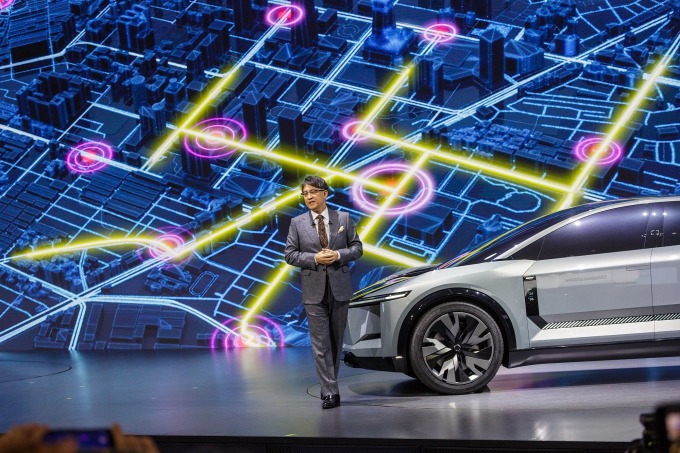
Toyota CEO Koji Sato speaks about Arene at this week's auto show in Tokyo. Photo: WSJ
Toyota is one of the pillars of the Japanese economy , providing employment to millions of people, both directly and indirectly. For more than 50 years, they have set the standard for global automakers, with principles that emphasize efficiency, waste reduction and continuous improvement.
But the company’s culture is built on strict production timelines and tight budget controls. Most of the company’s top executives—including CEO Koji Sato—have spent their youth at Toyota building their careers and avoiding mistakes. The company’s uniforms aren’t unique, like pullovers or black turtlenecks, but rather factory-worker shirts that Sato wears to internal meetings.
Toyota isn’t the only automaker struggling with software. General Motors this week halted its self-driving car division amid safety concerns from regulators.
Volkswagen, the world’s second-largest carmaker, has also spent billions of dollars and recruited a number of engineers to work on a software project. However, the project is facing difficulties, causing the launch of many models to be delayed, which partly led to the departure of CEO Herbert Diess.
VW and Toyota have lagged behind their newer rivals in this area. Tesla, BYD, and many others use software to control their vehicles’ features. This means everything from battery life to self-driving features can be improved through software updates, just like apps on your phone.
In an internal meeting in 2020, Toyoda urged employees to dream big. He said it was difficult to encourage innovation within Toyota because the company was so large. And decisions were often made based on precedent.
"In this volatile environment, not everything can be done logically," he said. Standing before his new company, he asserted: "I believe we can do great things. I believe we can change the world," he said.
After being founded in January 2021, Woven Planet offered high salaries to attract top software engineers abroad and acquired a series of startups, including the self-driving division of American ride-hailing company Lyft.
Woven opened a Silicon Valley-style office. Employees were allowed to use two-wheeled scooters. Regulations were more relaxed. They rented an office in a high-rise building in central Tokyo, nearly 300 kilometers away, where air conditioning and elevators were known to be frugal to cut costs.
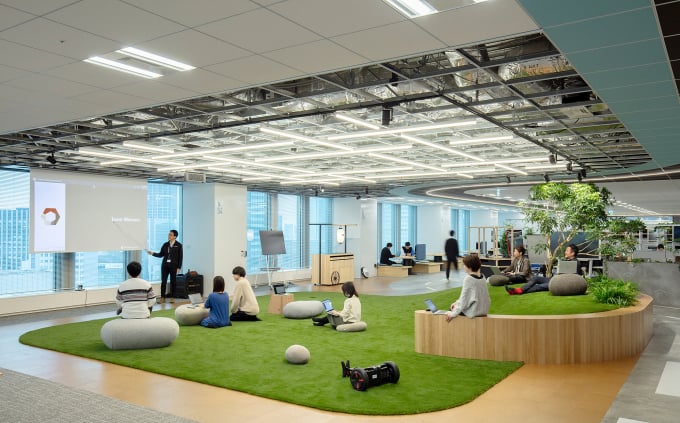
Inside Woven Planet's office in Tokyo. Photo: Toyota
To run Woven Planet, Toyoda chose James Kuffner, an automation expert who has worked with the automaker since 2016. Before that, he worked for Google's self-driving car division. Kuffner, 52, manages more than 2,000 employees at Woven Planet and is also responsible for training Toyoda's son, Daisuke, 35. Kuffner was paid nearly $9 million in the year ending March 2023, about $2 million more than his boss, Toyoda.
One of Woven’s ambitious projects is a multibillion-dollar city at the foot of Mount Fuji called Woven City, powered by hydrogen, where thousands of people will live and test self-driving cars and smart homes equipped with robots.
Another project is to create industry-leading software for Toyota cars. The company calls it Arene, a car operating system that it hopes will allow drivers to download updates over the internet, similar to Tesla. Arene-powered cars will connect to a cloud that collects and shares data from millions of cars, smart homes, and city infrastructure.
Developers outside Toyota will also be able to use the software to write apps for cars. Arene will be an open operating system for other car manufacturers, similar to Android for mobile devices.
However, this ambition is too big and difficult to meet the fixed launch date. The task is made more difficult by the fact that Toyota wants the software to work on so many devices, both electric and gasoline-electric hybrids.
Toyota and Woven Planet employees themselves found the vision too confusing. Six months ago, at an all-staff meeting at Woven, the most asked question to executives was, “What is Arena?”
Kuffner paused for a moment, then told Arene about his dream: to protect people with automated safety features, rather than just controlling the car's steering.
Executives at Woven Planet and Toyota have also debated this question. The development of the platform has taken longer than Toyota initially estimated. At one point, the target for a full version was pushed back to 2025, or even 2027.
At a product development meeting last year, Toyoda became angry when Woven Planet executives told him that several software updates Toyota wanted to launch by 2025 were not completed on time, according to people familiar with the matter, the WSJ said.
Last year, Woven Planet began shifting its focus to developing software that could be released soon. This meant creating software specifically for Toyota vehicles. Executives with automotive experience were also brought in. For its initial launch, Arene was positioned to focus on the in-car experience, with features that let drivers customize things like sports car sounds and a simulated manual transmission.
John Absmeier is Woven’s chief technology officer, brought in last year with a background in both the automotive and tech industries. He says Arene’s vision remains the same. “What’s changed over the past year is that it’s not going to be a big bang anymore, it’s going to be incremental.”
The changes were underscored in January when Toyoda handed the company over to Sato, whose new role as CEO will see him accelerate Toyota’s slow transition to electric vehicles.
Days after taking office, Sato pledged to launch 10 new electric vehicle models by 2026. He wants the Arene to be fully rolled out in line with the launch schedule of these models.
So Sato urged Woven to shift its focus to software that could be released early. Woven Planet was later renamed Woven by Toyota to align with the Toyota brand. Longtime Toyota executives, such as former CFO Kenta Kon and president Koji Kobayashi, joined the software company. Toyoda also transferred his shares to Toyota, making Woven by Toyota a full subsidiary of the Japanese automaker.
Kuffner stepped down this month, taking over from Hajime Kumabe of Denso, Toyota’s top supplier. The Japanese automaker said Arene will be available in select models starting in 2025, with a full version due in 2026. Initially, the software will only work on Toyota vehicles.
"Toyota has learned from its failures. They now have a clear definition of what they need to do, what they need to prioritize, and have a specific product plan for 2026," Takaki Nakanishi, a Japanese auto industry analyst, told the Wall Street Journal.
"The question now is whether Toyota can find a long-term successful car. Kuffner's time is over. The company that started as a Silicon Valley-style startup now has a Japanese CEO and is a Japanese company through and through," Nakanishi said.
At Woven by Toyota, some employees said they struggled to adapt to the new culture. Creating software isn’t something you can order and deliver on time like making brakes or exhaust pipes. Still, others said that with Toyota on board, they felt more confident in their ability to deliver on time.
Absmeier said he believes the division will retain its entrepreneurial culture, even if it is currently “playing by Toyota’s mold.” Toyota, like the auto industry as a whole, “sometimes struggles with change,” he said. But Absmeier said the company has a foundation and roadmap for software, and now it just needs execution.
Under the supervision of Daisuke Toyoda, construction of the first area of Woven City is expected to be completed next year. Woven is also looking for potential residents.
Woven's new CEO, Kumabe, who also worked with Kuffner on software projects, said he would not abandon his former boss's vision, but instead turn it into reality.
At last month’s farewell party, Kuffner appeared exhausted. When he spoke, he choked up and thanked everyone for his experience there. Kuffner said he would miss his former colleagues, and how much hair he had lost in the position.
Ha Thu (according to WSJ)
Source link





![[Photo] General Secretary To Lam receives Vice President of Luxshare-ICT Group (China)](https://vphoto.vietnam.vn/thumb/1200x675/vietnam/resource/IMAGE/2025/11/15/1763211137119_a1-bnd-7809-8939-jpg.webp)

![[Photo] Prime Minister Pham Minh Chinh meets with representatives of outstanding teachers](https://vphoto.vietnam.vn/thumb/1200x675/vietnam/resource/IMAGE/2025/11/15/1763215934276_dsc-0578-jpg.webp)
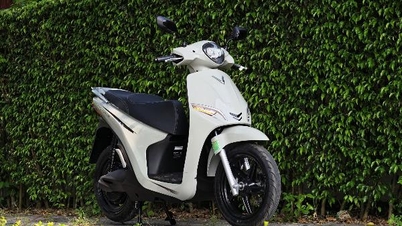

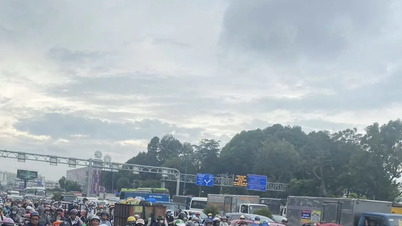

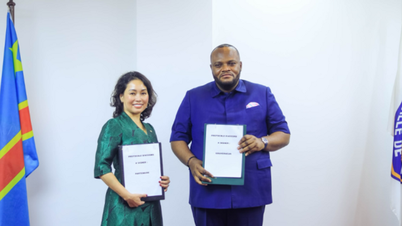

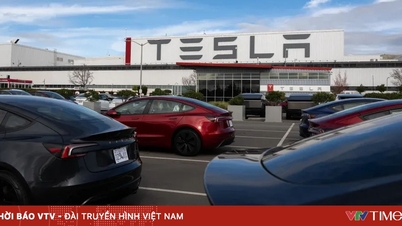

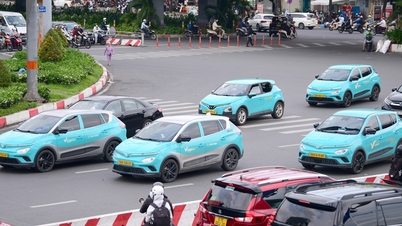





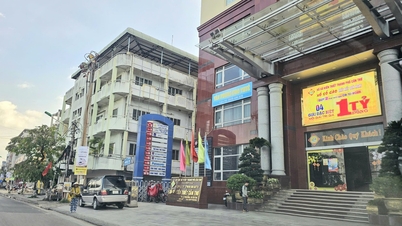
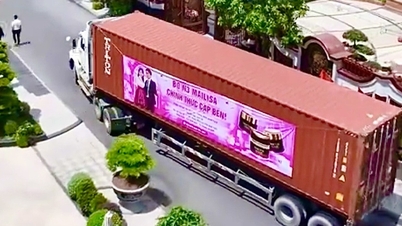
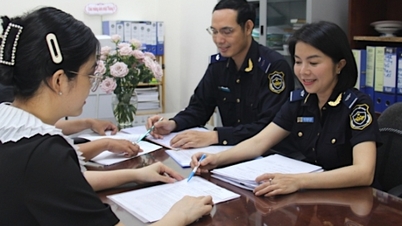
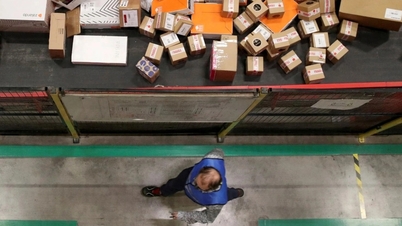
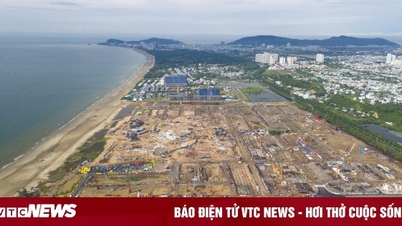


















































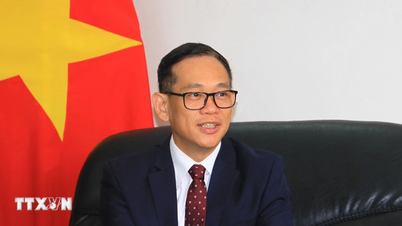







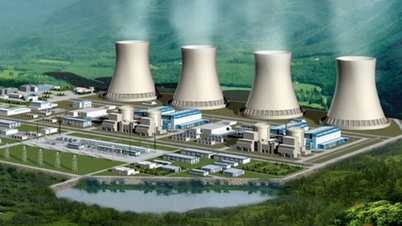







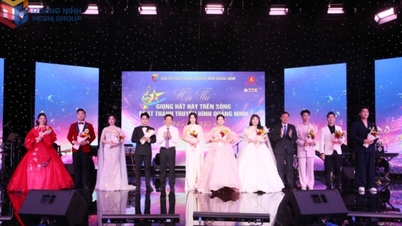

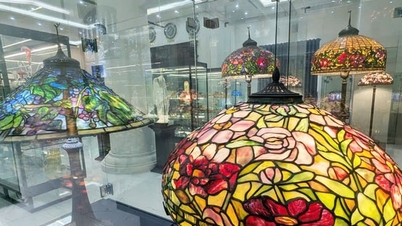













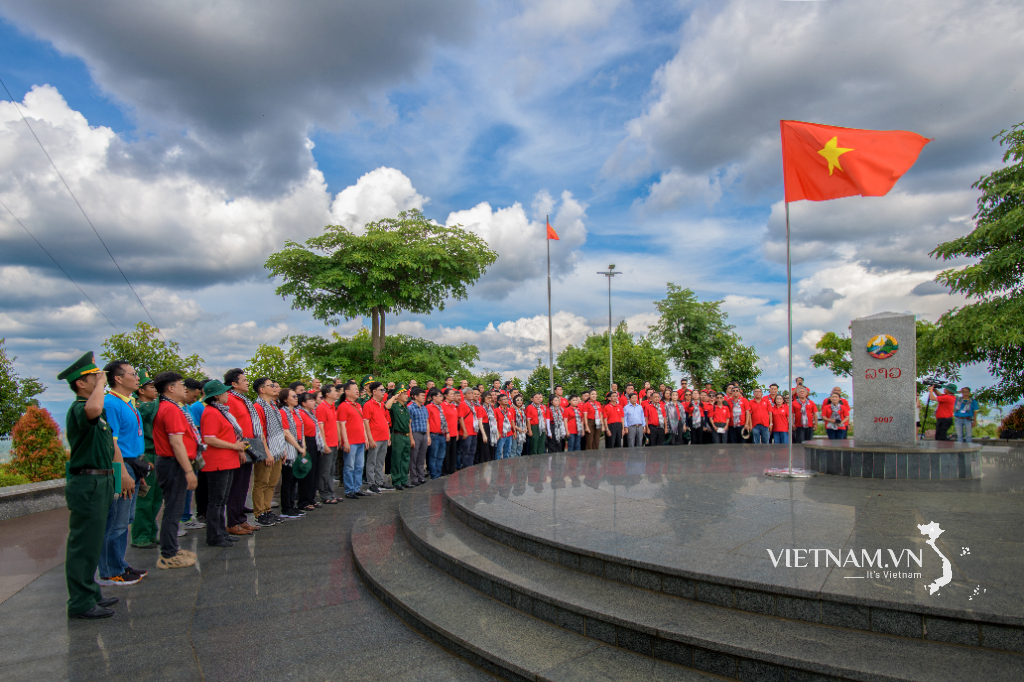
Comment (0)